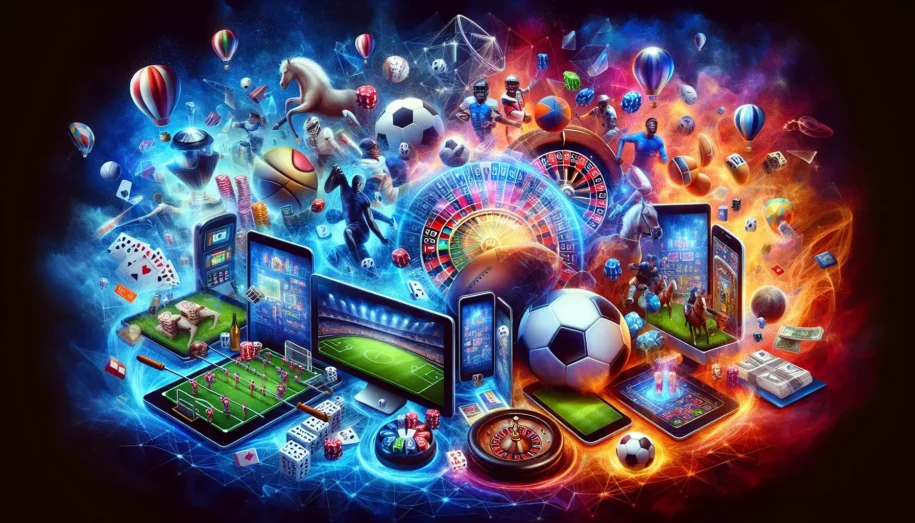As a unique blend of social interaction and gambling-style gameplay, social casinos are rapidly gaining popularity among iGaming enthusiasts. Unlike traditional casinos, which involve real money wagering, these casinos offer casino-style games for entertainment purposes only in a virtual environment.
In this article, inplaySoft will delve into the concept of social casinos, their appeal, mechanics, impact, and controversies, and will explore how they are reshaping the entertainment landscape.
What Are Social Casinos?
Social casinos are online platforms or mobile applications that simulate casino games such as poker, blackjack, roulette and slot machines. However, unlike traditional gambling platforms, these games do not involve real-money betting. Instead, players use virtual currencies, often provided for free initially, to participate in the games. Sometimes, additional virtual currency can be purchased using real money, though winnings cannot be cashed out.

What sets social casinos apart is their focus on entertainment rather than financial gain, coupled with interactive and social features that enhance player engagement.
Appeal
Social casinos can be appealing because they:
- Are easily accessible through smartphones, tablets and computers. Unlike traditional casinos that require a physical visit, they can be enjoyed anywhere and anytime, which makes them a convenient option for players.
- Do not involve real-money gambling, so players can enjoy casino-style games without the fear of losing their savings. This risk-free nature makes them particularly appealing to casual gamers and those curious about casino games, but wary of gambling’s financial implications.
- Integrate multiplayer modes, live chats and social media connectivity, which allows players to compete against friends or strangers. These features create a community-driven experience, fostering friendships and friendly competition.
- Often incorporate gamification features such as leaderboards, daily bonuses, achievements and challenges. These elements keep players engaged, motivated and encourage them to return regularly.
- Offer a variety of games, from traditional card games to themed slot machines, which cater to different preferences and ensure there’s something for everyone.
Business Model of Social Casinos
While social casinos are ostensibly free-to-play, they employ a monetization strategy known as freemium. Players can access basic gameplay without spending money, but have the option to purchase virtual currency, bonuses or exclusive items. This model relies on microtransactions, which can generate significant revenue despite the absence of real-money gambling.
Psychological Appeal
Social casinos tap into several psychological mechanisms to maintain player engagement:
- Intermittent Rewards: the random nature of casino games, combined with visually appealing animations and sound effects, creates an exciting environment that encourages players to keep playing.
- Social Validation: features like leaderboards, virtual trophies and public achievements provide a sense of accomplishment and social recognition, which motivates players to stay active.
- Loss Aversion: the fear of missing out on daily bonuses or limited-time events drives players to return regularly, which ensures consistent engagement.
Controversies
Despite their popularity, there are some controversies regarding social casinos, such as:
- Blurred Lines Between Gaming and Gambling: while they do not involve real-money betting, critics argue that their structure and gameplay closely mimic gambling, potentially normalizing gambling behaviors. This is especially concerning for younger audiences who might be introduced to these games through social media or app stores.
- Addictive Design: the gamification elements and reward mechanisms in these casinos can lead to compulsive behavior. Studies have shown that the psychological effects of virtual currency losses can be similar to real-money losses, which can lead to addiction.
- High Spending by Vulnerable Players: while most players enjoy social casinos without spending money, some fall into the trap of excessive spending on microtransactions. Vulnerable individuals, including those with a history of gambling addiction, may find it difficult to resist these in-app purchases.
- Regulatory Challenges: their legal status varies across jurisdictions. Since they do not involve real-money gambling, they often escape the stringent regulations applied to traditional casinos. However, this regulatory gray area has sparked debates about consumer protection and the need for oversight.
Impact of Social Casinos
Social casinos have had a profound impact on the gaming and gambling industries, including:
- Democratization of Casino Gaming: by removing the financial barrier, these casinos have made casino-style games accessible to a broader audience, including those who may never visit a physical casino.
- Revenue Growth: the freemium model has proven to be highly lucrative, with some social casino operators reporting millions in annual revenue. This success has attracted significant investments and partnerships within the gaming industry.
- Cultural Shift: social casinos have contributed to the gamification of gambling, blurring the lines between traditional gaming and gambling. This cultural shift has implications for how society perceives gambling and its risks.
Trends for the future
The future of social casinos is likely to be shaped by advancements in technology and evolving consumer preferences. Some potential trends are:
- Integration of Virtual Reality (VR) and Augmented Reality (AR): VR and AR technologies could take the immersive experience of social casinos to new heights by offering realistic casino environments and interactive gameplay.
- Personalization: social casinos may offer personalized experiences tailored to individual player preferences, which can enhance engagement and retention.
- Greater Regulation: as concerns about addiction and excessive spending grow, regulatory bodies may impose stricter guidelines on social casinos to ensure greater consumer protection.
- Expansion into New Markets: with the proliferation of smartphones and internet connectivity, social casinos will probably expand into emerging markets and reach new audiences globally.
Considerações finais
Social casinos are a fascinating convergence of technology, entertainment and gaming. They replicate the excitement of traditional casinos while offering a risk-free environment. Their rise, however, brought up challenges and ethical questions, particularly concerning their impact on vulnerable individuals and their role in normalizing gambling behaviors.As the iGaming industry continues to evolve, striking a balance between innovation and responsibility will be crucial. With the right safeguards and regulatory frameworks, social casinos can remain a source of entertainment for millions while minimizing potential harms.

